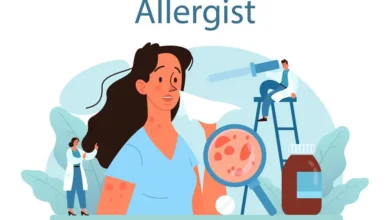Inside the Anxious Mind: A Personal Journey through Anxiety
Whispering Worries: Exposing the Inner World of Anxiety Struggles

Introduction: Understanding anxiety
In the fast-paced world we inhabit, where stress and uncertainty seem to lurk around every corner, understanding anxiety has become more crucial than ever. This is a complex emotion that can manifest in various forms, from mild unease to debilitating panic attacks. The causes of anxiety are multifaceted, ranging from genetic predispositions to environmental stressors. With the prevalence of these on the rise, exploring effective treatments like propranolol dosage for management has garnered significant attention. “Imagine yourself standing on the edge of a cliff.” Your heart is racing, your palms are sweaty, and your thoughts are spiraling out of control. This is akin to experiencing an anxiety attack.
Early signs and symptoms
It’s not uncommon to experience overwhelming feelings of worry or restlessness that can interfere with our daily lives. This condition is called anxiety, and it’s important to recognize the early signs to manage it effectively. Some of the common indicators include persistent worry, restlessness, irritability, and trouble concentrating. This not only affects mental health but also causes physical symptoms like muscle tension, fatigue, and sleep difficulties.
To treat anxiety, it’s important to understand its root causes, which can include genetics, brain chemistry, and stressful life events. For those experiencing severe stress attacks, medication like Propranolol can help manage physical symptoms by slowing down the body’s response to stress.
However, seeking professional help and exploring various treatment options are key steps in addressing anxiety effectively. By staying proactive and open-minded about different approaches to managing symptoms, individuals can regain a sense of control over their mental health and well-being.
1. Physical Symptoms: Rapid heart rate, sweating, trembling
When anxiety strikes, it can manifest in various physical symptoms, such as a rapid heart rate, profuse sweating, and trembling. These reactions are the body’s way of responding to a perceived threat or danger, triggering the fight-or-flight response. While these symptoms can be distressing and overwhelming, understanding that they are a natural response to stress can help alleviate some of the fear associated with them.
Anxiousness is a condition that causes nervousness, worry, and physical symptoms like sweating, shaking, and a rapid heartbeat. There are medicines called beta-blockers that can help calm your body’s reaction to anxiety and reduce these physical symptoms. However, it’s important to talk to a doctor before taking any medicine to make sure it’s safe for you and to help you decide how much to take.
There are also other things you can do to help with this, like exercising regularly, practicing mindfulness, and talking to a therapist. These things can help you feel better and improve your quality of life by addressing both the physical and emotional parts of stress.
2. Emotional signs: Excessive worry, irritability, and restlessness
Excessive worry, irritability, and restlessness are telltale signs of stress that can affect individuals in various ways. Experiencing persistent and overwhelming worry about everyday situations may lead to feeling out of control or unable to cope with stressors. Moreover, heightened irritability often accompanies this excessive worry, causing individuals to become easily agitated or frustrated over minor issues. Restlessness adds another layer to the mix, as it manifests as an inability to relax or sit still due to the constant buzzing energy within.
These emotional signs of eagerness can be challenging to navigate alone, prompting many individuals to seek professional help for effective treatment. While therapy and medication like Propranolol are common avenues for managing anxiety symptoms, exploring holistic approaches such as mindfulness practices or support groups can also provide relief.
It is important to identify the underlying reasons for keenness in order to address the emotional symptoms effectively. These reasons may include past trauma, genetic predisposition, or external stressors. By utilizing a combination of therapies that are customized to fit the individual’s needs and taking into account factors like the appropriate dosage of propranolol for stress management, people can work towards regaining control over their emotional health.
3. Behavioural Changes: Avoidance, seeking reassurance, difficulty concentrating
Behavioral changes such as avoidance, seeking reassurance, and difficulty concentrating are common manifestations of anxiety. When individuals experience overwhelming anxiety symptoms, they may try to avoid situations or triggers that exacerbate their distress. Avoiding situations that trigger anxiety can lead to a vicious cycle of fear and further reinforcement of anxious behavior. Seeking reassurance is a common response to anxiety, where individuals constantly seek validation from others to alleviate their worries and uncertainty. However, this-seeking behavior can become a maladaptive coping mechanism that perpetuates feelings of insecurity and dependence.
When someone experiences anxiety, it can be hard to concentrate or make decisions due to worrisome thoughts occupying their mind. This can be frustrating and make them feel like they need to be better. To help with these changes in behaviour caused by anxiety, it’s important to use a comprehensive approach that deals with both the symptoms and the underlying causes. While medicine like Propranolol can help with physical symptoms, therapy techniques like cognitive-behavioural therapy (CBT) can help people change their negative thoughts and behaviours that make them feel anxious.
The following text talks about sleep disturbances that are commonly associated with underlying anxiety issues, such as insomnia, restless sleep, and nightmares. People who experience anxiety often find it difficult to fall asleep or stay asleep due to racing thoughts and heightened physiological arousal. They may experience vivid dreams or nightmares that affect sleep quality.
In order to manage sleep problems that are caused by anxiety, it’s important to address the root cause of the anxiety itself. Anxiety can negatively affect mental and physical health. Identifying its root causes can assist in developing coping strategies and enhancing sleep quality.
In some cases, medications like Propranolol are prescribed to help alleviate physical symptoms of anxiety, which in turn can improve sleep quality. Individuals experiencing sleep disturbances related to anxiety should seek professional help and explore tailored treatment options to address their specific needs.
4. Cognitive symptoms: Racing thoughts, trouble making decisions
Anxiety can cause a lot of mental and physical problems, including racing thoughts that make it hard to focus on anything and make decisions. Anxiety can manifest physical symptoms like a racing heartbeat and shaking. However, Propranolol is a medication that can help alleviate these symptoms. It helps individuals think more clearly and make better decisions by relaxing the mind and body. Additionally, there are other ways to manage anxiety, such as seeking help from a therapist or making lifestyle changes. By taking steps to manage anxiety, people can feel more in control of their lives and make better choices.
5. Social Impact: Isolation, withdrawal from social activities
Isolation and withdrawal from social activities are common symptoms of underlying disorders. People experiencing eagerness may find it challenging to engage in social interactions, leading to feelings of isolation and disconnection. This self-imposed seclusion can intensify feelings of loneliness and further fuel the cycle of anxiety.
Understanding the causes of keenness is crucial to addressing the root issues that contribute to social withdrawal. It is important to recognize that anxiety manifests differently in each individual, and tailored treatment plans, such as therapy or medication like Propranolol, are essential to managing symptoms effectively. By addressing anxieties head-on and seeking appropriate support, individuals can gradually overcome their inhibitions and re-engage with social activities, ultimately fostering a sense of connection and belonging that is vital for mental well-being.
In conclusion, breaking free from the grip of isolation caused by eagerness requires proactive steps toward understanding one’s triggers and seeking proper treatment. By acknowledging the impact that social withdrawal has on mental health and taking measures to address the underlying causes, individuals can reclaim their confidence and rebuild connections with others. Embracing a holistic approach to managing anxiety symptoms is paramount to paving the way toward a more fulfilling and socially engaged life.

Coping mechanisms and strategies
Coping mechanisms and strategies are essential in managing this prevalent mental health issue that can result from various factors like stress, trauma, or genetics. When faced with a keenness attack, individuals can benefit from grounding techniques like deep breathing exercises or progressive muscle relaxation to help regulate their emotions. It’s also crucial to engage in activities that promote mindfulness and self-care, such as yoga or meditation, to cultivate a sense of calmness and inner peace.
In addition to these coping mechanisms, seeking professional help is equally important for proper treatment. Cognitive-behavioral therapy (CBT) is a widely used therapeutic approach that helps individuals challenge negative thought patterns and develop healthier coping strategies. For individuals with severe anxiousness symptoms, doctors may prescribe medications like propranolol to help manage physical symptoms like tremors or sweating.
Seeking professional help
Professional assistance is a crucial asset for individuals dealing with symptoms of anxiety. Although some may attempt to handle their eagerness independently, consulting with a certified therapist or counsellor can offer beneficial techniques and resources for managing it. It is vital to acknowledge that the origins of eagerness are intricate and unique, underscoring the significance of professional involvement in pinpointing and resolving underlying concerns.
Managing these symptoms can involve various approaches, including therapy and medication. Propranolol is one such medication that can be effective in reducing these. However, it is important to determine the right dosage for an individual to achieve optimal results.
Overcoming challenges and setbacks
Coping with eagerness and its symptoms can be a difficult task, but it is important to bear in mind that setbacks are normal when trying to overcome them. One approach to consider is trying out various anxiety treatments, such as incorporating relaxation techniques or mindfulness practices into your daily routine. By experimenting with different strategies, you may find alternative methods that better suit your specific needs and preferences.
It’s important to acknowledge the underlying causes of keenness and address them head-on, rather than simply masking the symptoms. Understanding the root triggers of your eagerness can provide valuable insight into developing a more personalized treatment plan tailored to your specific circumstances. Additionally, finding the right dosage of medications like Propranolol for anxiety requires patience and collaboration with healthcare professionals to ensure optimal effectiveness without adverse side effects. When we view challenges as opportunities for growth, we can overcome eagerness and improve our overall mental well-being.
Embracing self-care practices
Taking care of yourself is essential for managing anxiety and improving your overall well-being. While medication can help alleviate keenness symptoms, it’s equally important to incorporate self-care into your routine. This includes things like mindfulness meditation, exercise, getting enough sleep, and eating healthy foods. When you prioritize self-care, you’re taking steps to address the root causes of your anxiety, not just covering up the symptoms.
When you embrace self-care, you’re empowering yourself to combat eagerness. It helps you regain control over your mental health and build resilience against stressors in life. It’s important to understand that taking care of yourself is not selfish but a necessary investment in yourself. By doing so, you can show up fully for others and handle challenges with greater ease.
Including activities that promote self-care in your daily routine can greatly improve your mental well-being and overall quality of life. Self-care helps keep your body, mind, and emotions healthy, which is important in both personal and professional life. It’s important to prioritize self-care practices in your daily routine, as they can reduce stress and increase productivity. Improving focus and enhancing physical and mental health. It not only helps manage anxiety, but it also fosters a strong sense of self-awareness and emotional well-being. Ultimately, prioritizing self-care is an act of compassion for yourself that can lead to a more balanced and fulfilling life.

Conclusion: Finding peace within anxiety
Finding peace within eagerness is a journey that requires self-compassion, acceptance, and resilience. It’s about acknowledging the turbulent emotions that come with eagerness and learning to coexist with them rather than trying to suppress or eliminate them. Embracing mindfulness practices can be a powerful tool in managing anxiety, as it allows us to observe our thoughts and feelings without judgment.
Furthermore, seeking professional help and exploring different treatment options tailored to individual needs can provide valuable support in navigating the challenges of anxiety. Understanding the root causes of our anxiety can also be transformative in finding inner peace, as it helps us address underlying issues that contribute to our emotional distress. Ultimately, finding peace within anxiety is not about eradicating all feelings of unease or fear but rather about cultivating a sense of calmness and acceptance amidst life’s uncertainties.
People also want to know.
What exactly is anxiety?
Anxiety is more than just feeling nervous or stressed; it’s a complex mental health condition that can have profound effects on a person’s daily life. It manifests in a variety of symptoms, from racing thoughts and restlessness to physical sensations like heart palpitations and sweating. Effective treatment for anxiety involves therapy, medication, exercise, and mindfulness practices, as well as understanding its possible causes, such as genetics, brain chemistry, and traumatic experiences.
One medication commonly prescribed for anxiety is propranolol, which helps by blocking the action of stress hormones in the body. Finding the right dosage of propranolol for each individual can be key to managing symptoms effectively and improving overall quality of life. Eagerness may be a challenging condition to navigate, but with proper support and resources, it is possible to find relief and regain control over one’s mental well-being.
What are the five symptoms of anxiety?
Anxiety is a common condition that affects both the mind and body. It can cause excessive worry and fear about everyday situations, even without any apparent reason. People with anxiety might experience physical symptoms like sweating, shaking, and a fast heartbeat. These reactions happen when the body’s fight-or-flight response kicks in due to stress or perceived threats.
Moreover, anxiety can also affect a person’s ability to concentrate and make decisions. Anxiety may cause racing thoughts, difficulty concentrating, and restlessness. It’s important to recognize these symptoms and seek help early on to manage anxiety effectively.
How do I handle anxiety?
If you are struggling with anxiety, there are some effective techniques that you can use to feel better. One of them is practicing mindfulness, which involves activities like deep breathing, yoga, or meditation. By doing these regularly, “you can learn how to control your thoughts and focus on the present moment.” This can help reduce the feelings of worry and panic that often come with anxiety.
Another useful way to manage anxiety is by leading a healthy lifestyle. This includes getting enough sleep, exercising regularly, and eating a balanced diet. It is important to limit the consumption of caffeine and alcohol, as they can increase the symptoms of anxiety.
If you experience physical symptoms of anxiety, such as tremors or a rapid heartbeat, medication may be necessary to alleviate them. It’s important to talk to a doctor who can help you figure out which medicine and how much of it is right for you and your health condition.
What is the 3-3-3 rule for anxiety?
If you are feeling anxious and overwhelmed, try a simple technique to calm down. It’s called the 3-3-3 rule, and it involves three steps:
1. Look around and identify three things you can see.
2. Listen carefully and identify three sounds you can hear.
3. Move three parts of your body, like your fingers, toes, or shoulders.
These three actions can help you shift your focus from worries to the present moment. This helps you feel more grounded and present, which can reduce your anxiety levels.
The 3-3-3 rule is a great tool for managing anxiety symptoms. It can be used anytime and anywhere. To enhance its effectiveness, you can even combine it with deep breathing exercises. By practicing this technique regularly, you can learn to regulate your emotions and promote a sense of calm.
Incorporating the 3-3-3 rule into your daily routine can be beneficial for managing anxiety, as it provides a quick strategy for coping with overwhelming emotions. By practicing this technique regularly, individuals experiencing anxiety may find relief from symptoms while also building resilience against future episodes of stress or worry.



